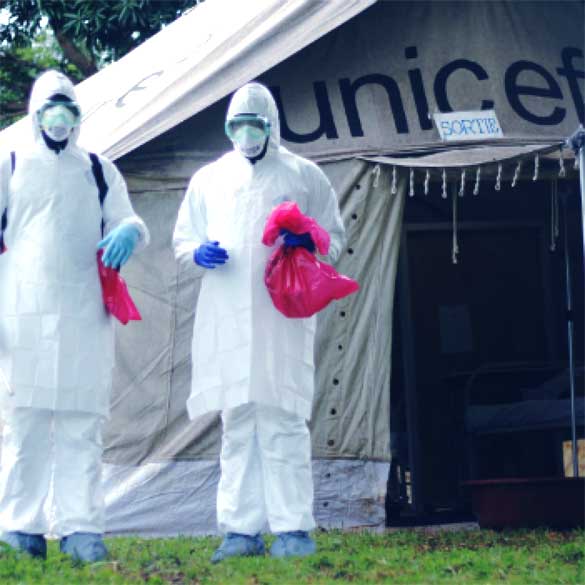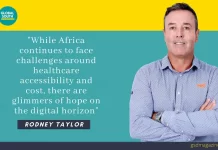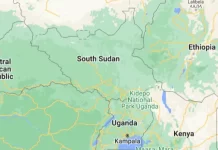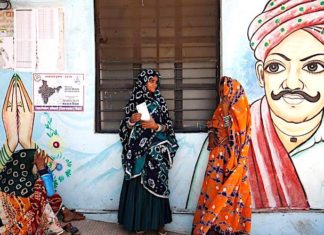 By Manoj Kr. Bhusal
By Manoj Kr. Bhusal
Media frenzy for Ebola seems to have subdued, but suffering in West Africa hasn’t.
As of 27 November, more than 5700 people have died from the Ebola virus, according to the World Health Organization.
Tony Banbury, the head of the UN mission for fighting Ebola in West Africa, recently revealed that the UN lacks resources to defeat the Ebola virus.
According to a team of African and European researchers led by epidemiologist Fabian Leendertz, the current Ebola outbreak began in December 2013 near the village of Meliandoua in eastern Guinea when an Ebola-infected fruit bat bit a two-year-old toddler.
The epidemic that began in a Guinean hinterland spread across borders claiming many lives in neighboring West-African nations. The deadly virus also reached American and European backyards, creating widespread anxiety in the West and elsewhere.
People were quick to point out that the virus could spread more rapidly than any epidemics in the past since the world now is much more mobile and connected than at any time in history. These claims of connections are not untrue in a sense, but when it comes to combating the disease, the story of connection seems to be quite different. Global connections that we proudly boast of seem to be rather weak and lousy.
Otherwise, Ebola financing wouldn’t have to be this difficult. Apparently we live in an oddly connected world where it’s easier to finance wars and lethal weapons than life-saving drugs and vaccines.
It’s easier to finance wars and lethal weapons than life-saving drugs and vaccines.
Ebola is one of the worst public health emergencies of our time and fighting it undoubtedly requires billions of dollars, thousands of health workers, a huge number of medical supplies, and a concerted and committed global effort. Funding requires not only in treatment, but also in prevention, awareness-raising, and most importantly, on research and development. Investing in RD is crucial also because there isn’t a vaccine for Ebola prevention yet and there have been fears that the virus could mutate, change its roots of transmission, and become airborne.
The fight against Ebola is going to be a tedious one. Many relief organizations have been working tirelessly at the frontier of the Ebola epidemic in West Africa. We have seen people like William Pooley; the British nurse who contracted Ebola while working in Sierra Leone has now returned to Sierra Leone and resumed his work in an Ebola isolation unit.
However, the response from corporate giants, big pharmaceutical companies, and some governments have been very fickle and inadequate.
Tech giants at Silicon Valley that actively participated in the ALS ice bucket challenge sit at the epicenter of wealth, but when it comes to helping the fight against Ebola, their response has been slow and inadequate. Apple Inc., valued at close to $600 billion, hasn’t made any contribution to Ebola fighting so far.
Other companies like Facebook, Google, and Microsoft have pledged their support in the form of tech and cash, but many have termed their response as ‘too little, too late’. Another tech giant IBM decided to donate software for free while Samsung and LG gave away mobile phone sets instead of cash.
It’s not a secret that many tech companies at Silicon Valley depend on African raw materials to produce their sleek, over-priced products, but when it comes to helping Africa, apathy prevails.
According to the Ebola Outbreak Corporate Aid Tracker maintained by the US Chamber of Commerce, corporate giants have pledged $44.4 million in cash and additional contributions in support of Ebola relief and recovery efforts. But again a pledge is a pledge unless it is duly fulfilled.
According to the USCC’s Corporate Aid Tracker, the Western Union Company that does an infinite number of transactions with Africa every year has donated just US$25,000, while the multinational banking giant JP Morgan Chase decided to give merely $300,000, far less than the furniture retailer IKEA which alone donated $6.2 million.
Lack of donations is one problem, and lack of willingness is yet another.
Lack of donations is one problem, and lack of willingness is yet another. It has been argued that there is no vaccine for Ebola yet primarily because big pharmaceutical companies are not interested in investing in Ebola vaccines. For them, Ebola isn’t a money machine, like cancer, diabetes, or heart diseases.
“This is the moral bankruptcy of capitalism acting in the absence of an ethical and social framework,” concludes John Ashton, president of the UK Faculty of Public Health, in his recent opinion piece in the Independent.
Last week, the UN Secretary-General Ban Ki-Moon called on Asian countries to step up efforts in the global fight against Ebola. For countries like China and India, Africa is a fertile destination for trade and natural resources, but when it’s time to help Africa in difficult times, they have done little. Cuban health professionals were the ones to immediately reach for help when the Ebola outbreak hit West Africa. Help doesn’t always come from sources that we are accustomed to expect.
Epidemics like Ebola cause a lot of deaths, displacements, and despair; and they aren’t desirable for sure, but on a positive side, they also show us the ugly side of corporate capitalism and make it very clear who genuinely cares about the world and who doesn’t.
(Manoj can be reached at [email protected])











